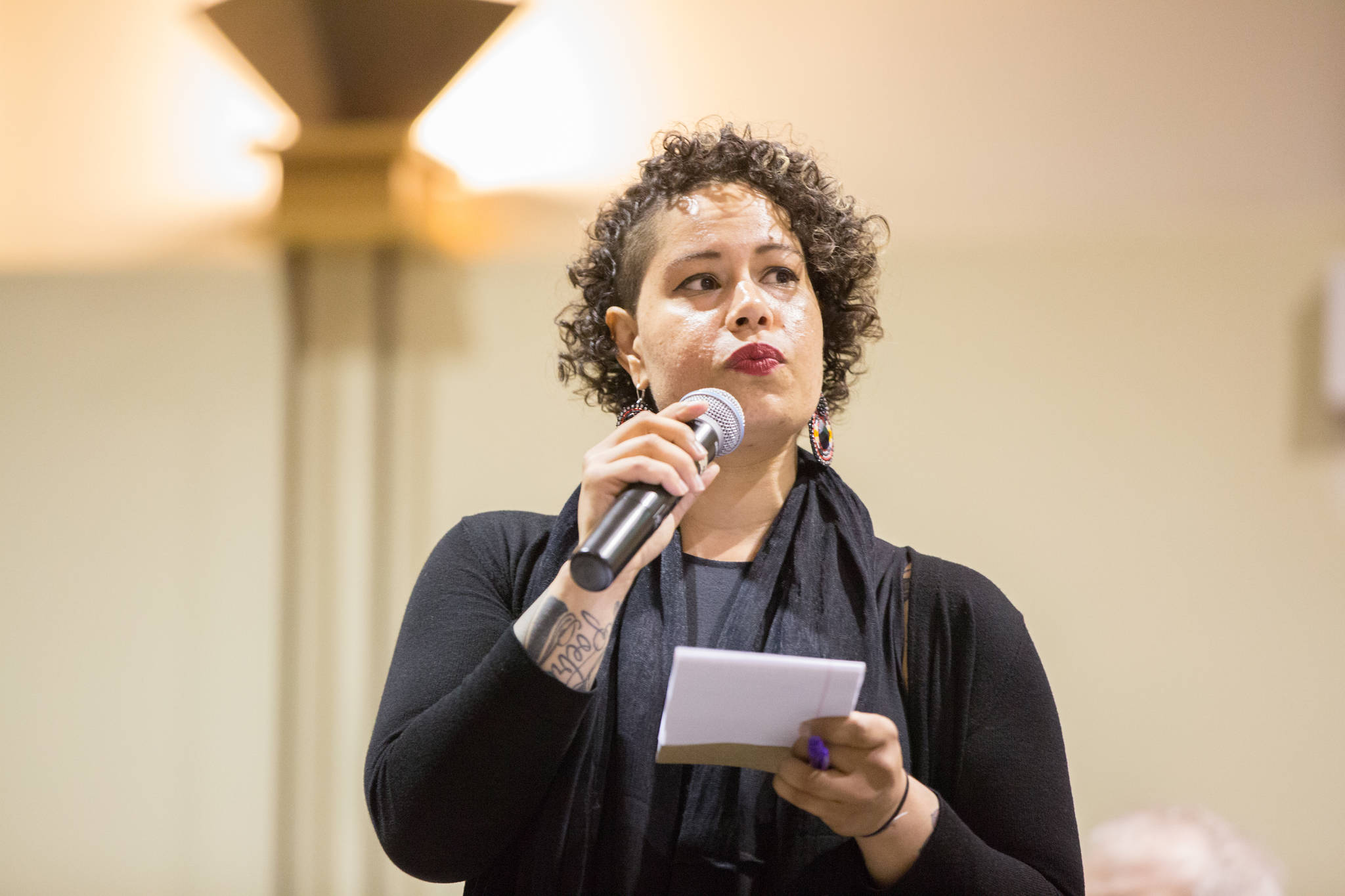The big news at last night’s mayoral debate was that current Mayor Ed Murray will send to council legislation to create an income tax on high earners, effectively triggering a potentially precedent-setting state Supreme Court case.
But while Murray’s announcement stole the spotlight, last night’s 46th District Democrats debate at the Seattle Mennonite Church covered a lot of substantive ground, including housing affordability and homelessness, drug policy, tax reform and police and jails.
At least, it was substantive with regard to the four serious candidates: Murray, Nikkita Oliver, Mike McGinn and Cary Moon. The other three candidates, not so much. Socialist Workers Party candidate Mary Martin replied to every question with a canned answer about how capitalism is bad and the Cuban Revolution is good. Public meeting troll Alex Tsimerman held forth with his usual mix of insults and accusations of Nazism in a rich eastern European brogue. And Jason Roberts, who wears a graying beard and well-made suits, said he’d be an advocate for small business and would “like to see growth slow down.”
Moon (an urban planner and activist) and McGinn (Murray’s predecessor) both jockeyed to contrast themselves as grassroots populists in contrast to Murray’s aloof managerial approach, talking about the need to connect with neighborhoods and to tax the rich. The mayor mostly stuck to listing the accomplishments that have occurred during his first term, such as passing a $15 minimum wage, expanding pre-kindergarden for poor families, and putting new taxes on developers to mitigate the harmful side-effects of growth.
But it was lawyer and activist Nikkita Oliver who arguably influenced last night’s debate the most. An accomplished spoken word poet, Oliver’s oratorical style is fast and detailed. For example, here’s her one-minute answer to a question about how to address the homelessness crisis:
“First of all, encampments are a mitigation to dealing with issues of homelessness in our city. One thing we have to stop doing is sweeps. What sweeps do is disrupt the stability of people who are already in an unstable position. They lose everything they have, including their paperwork. We need low-barrier options. People are dealing with addiction, they’re traumatized, and in order for them to get stable to deal with their addiction, they need low-barrier option places to live. We need 24/7 storage in transitional housing that allows people to get on their feet. We also need to leverage our city’s bonding capacity to immediately build housing that is appropriate for families and individuals. And then we need a voucher system, or some other system to prevent people from losing their homes. The number of times we’ve leveraged property taxes to deal with issues in our city has put a lot of people out of their homes, people who are just a paycheck away from being homeless. So we need to figure out a way to keep people in their homes as we’re trying to build more housing to get people into homes.”
Like McGinn and Moon, Oliver criticized the mayor for not listening to neighborhoods. “Just last week I met with a group of homeowners. What I was told was that when the neighborhood councils were taken out of neighborhoods, people felt like they stopped having a direct line of communication to the people who have the direct decision-making power,” she said. “I believe in finding ways—that I as an organizer have spent my entire career doing—[of] getting with folks, developing or building a solution, and then figuring out how those of us who have bureaucratic power actually help you finance those solutions and allow you to have decision-making power about what your neighborhood looks like.
“Every great change that has occurred in this city in the past eight years,” said Oliver, “has been because those communities have risen up and used their voice to ask for that change: shut down chambers, gone to people’s houses and into their offices, until we got the change that we most needed. It has not been because politicians moved for it. HALA, MHA, $15 [Now], the No New Youth Jail campaign, Block the Bunker—even the consent decree have all been because of movements of the people. What we need are leaders who listen to the needs of the most impacted in our communities, and actually act on those solutions that are being brought forward by them.”
The debate included a “lightning round” in which candidates held up “YES” or “NO” signs in response to questions from the moderator.
Summary of mayoral candidate responses to lightning round at last night's debate.@mayormcginn @NikkitaOliver @CaryCMoon @MayorEdMurray pic.twitter.com/RADdKQUbwS
— Casey Jaywork (@CaseyJaywork) April 21, 2017
Two clarifications to those answers. First, Moon says she answered “NO” on the income question because of the inevitable legal challenges. She says she supports taxes on real estate speculation, luxury real estate, and capital gains (which are a type of unearned income). Second, Murray says he answered “NO” to the sweeps question because “Seattle doesn’t do sweeps.” Murray holds that because his ongoing homeless encampment evictions are performed more humanely than those in the past, they do not count as “sweeps.”
cjaywork@seattleweekly.com
This post has been edited for clarity.








